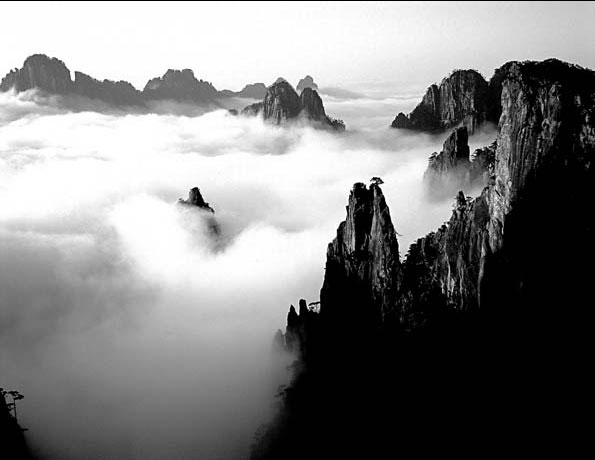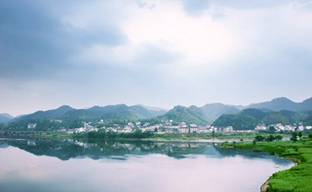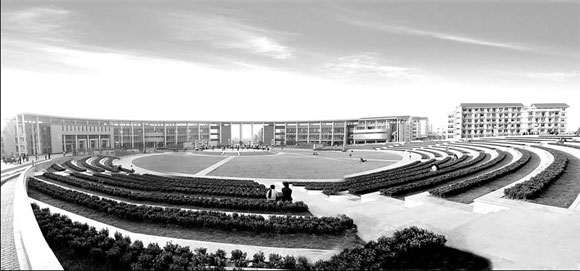|
 |
|
Huangshan Mountain, a UNESCO world cultural and natural heritage site and world geological park, is the most famous tourist attraction in Anhui.
|
Location
Neighboring Jiangsu, Zhejiang, Henan, Hubei, Jiangxi and Shandong, Anhui is an important province that links China's central and eastern regions. Anhui and its six neighboring provinces contribute nearly 40 percent of China's gross domestic product and have a combined population of nearly 500 million.
Resources
Land
Anhui has 5.73 million hectares of farmland suitable for growing a wide range of crops.
Water
Total average annual water volume in Anhui's rivers and lakes reached 71.6 billion cu m in recent years. The province has a well-developed irrigation system and flood control projects.
Flora and fauna
The province has 3.6 million hectares of forests with a large variety of animals and plants, including 300 types of woody plants, over 2,100 kinds of herbs and more than 500 species of animals. It has 91 rare animal species including the Chinese alligator and white fin globefish.
Minerals
Anhui has 138 kinds of minerals that have been discovered to date, 111 of which have been explored and mined. Its reserves in 12 minerals rank among the top 10 in the nation, including coal, iron, copper, sulfur and limestone.
Tourism
Huangshan Mountain and ancient villages in Xidi and Hongcun in Yixian County are on the UNESCO's World Heritage List. The mountain is also a world geological park.
Technology and education
Anhui province has a sound foundation in science and technology. Its capital Hefei is an important center for scientific and technological research in China. There were 1.24 million technicians and engineers in the province in 2007.
Area
Anhui Province is about 570 km from south to north and 450 km from east to west. It covers an area of 139.6 thousand square kilometers, about 1.45 percent of the total area of the country.

Topography
There are various landforms in Anhui. The Yangtze River and Huaihe River flow through the province and divide the whole province into three main natural area to the Huaihe River, the area between the Huaihe River and the Yangtze River and the south area to the Yangtze River. Some major mountains, such as Dabie Mountain, Yellow Mountain, Jiuhua Mountain and Tianzhu Mountain lie in Anhui, and the highest peak of Yellow Mountain---Lotus Peak is 1,860 meters above sea level. Among many rivers and lakes in Anhui, Chaohu Lake is one of the five great freshwater lakes in China, with an area of 800 square kilometers.
Infrastructure
Roads
The province has 148,400 km of roads, including 2,206 km of expressways. The length of expressways will reach 3,500 km by 2010.
Railroads
Anhui has the most railway mileage in east China. Both the Beijing-Shanghai and Beijing-Kowloon railroads run through the province
Aviation
Hefei and Huangshan are the two aviation hubs in Anhui serving both domestic and foreign flights. Four other airports have direct flights to major domestic cities.
Waterways
The province has three main rivers - the Yangtze, the Huaihe and the Xin'an. There are five open inland river ports including Ma'anshan, Wuhu, Tongling, Chizhou and Anqing along the 400-km Anhui section of the Yangtze.
Communications
Anhui has established a modern communication network with fixed lines, long-distance digital transmission and mobile communications. In 2007, the number of fixed-line, mobile phone and Internet users reached 14.94 million, 14.1 million and 15.59 million respectively.
Power
The power generation reached 86.8 billion kWh in Anhui in 2007.
 |
|
A production facilitiy of Chery Automobile Co Ltd, an internationally known homegrown auto maker in China.
|
 |
|
New campus of Anhui University. With 97 universities and 158 research institutes, Anhui has a sound foundation for scientific and technological research.
|
|